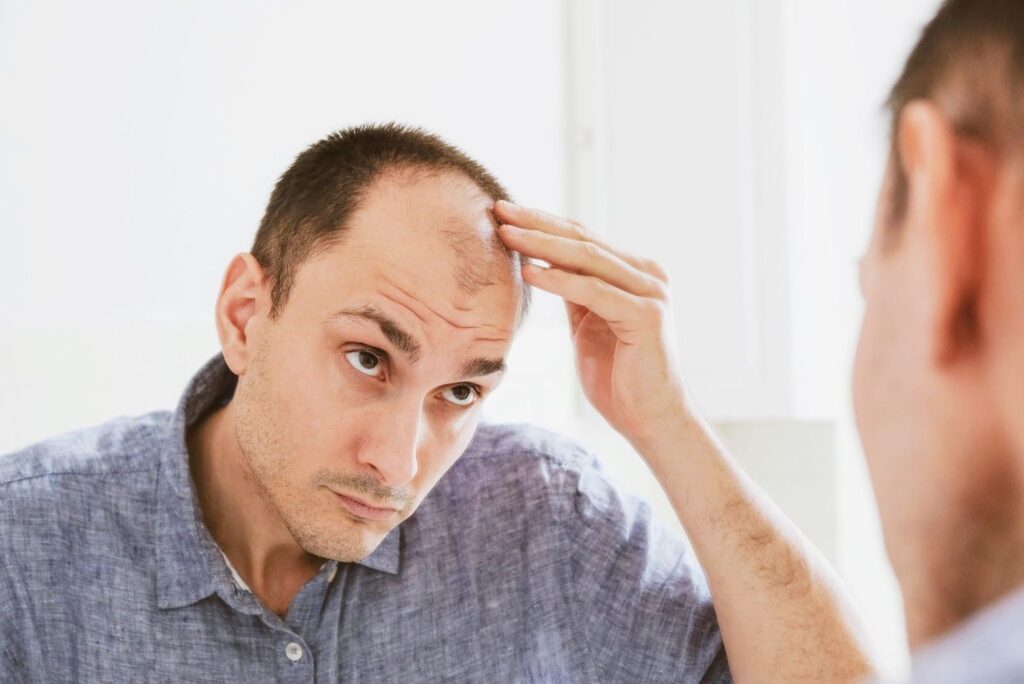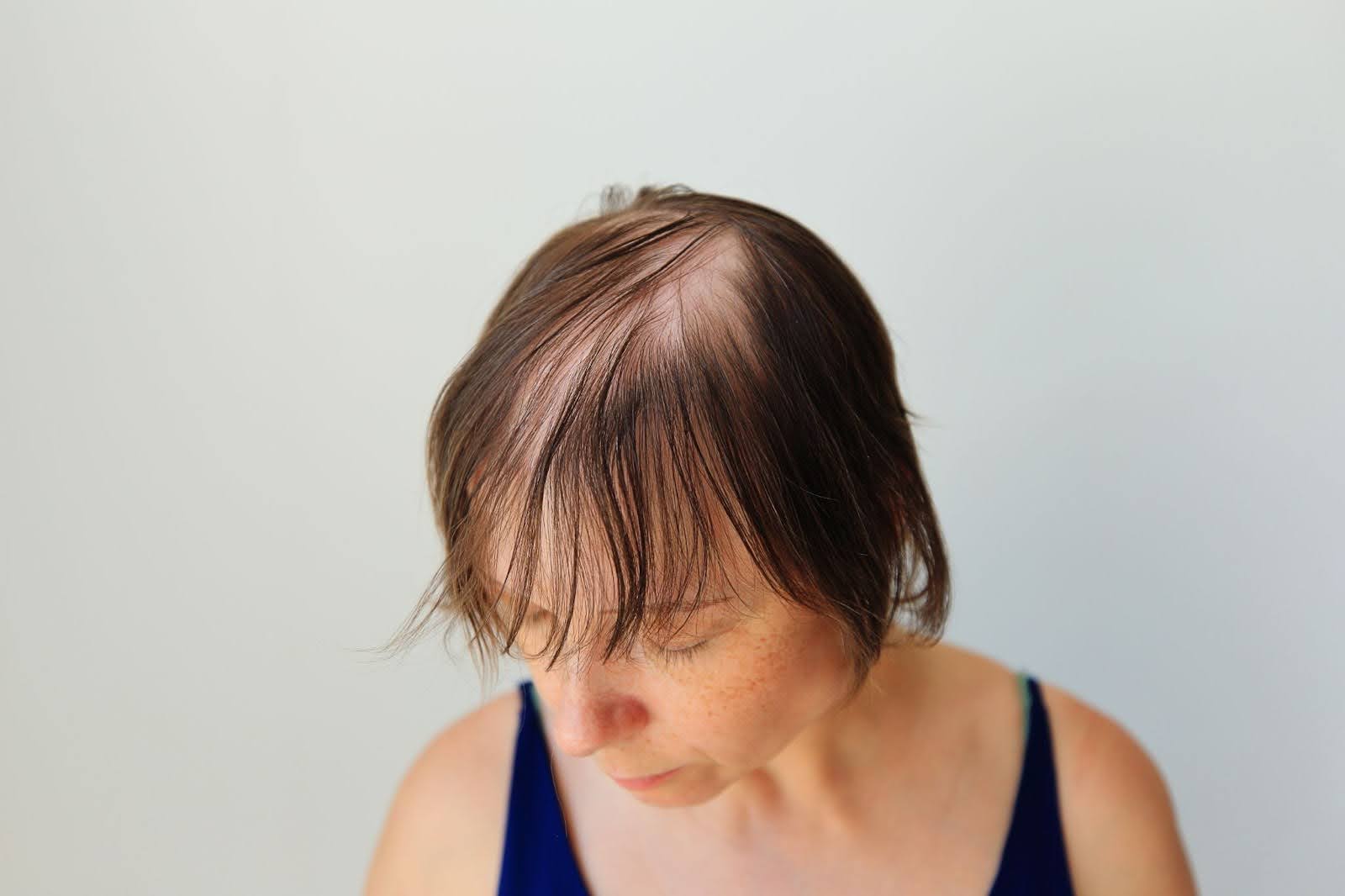Hair loss can happen for many different reasons, from medical conditions to simple lifestyle factors. Often, hair loss has hormones at its root. A notable change in your hormones can be one of the main contributors to thinning hair. Much of the time, these hormonal shifts can be addressed, brought back into balance. And even if your hormones cannot be realigned, there are still ways for your hair to be restored.
Here at Renu, we understand that hair loss can compromise your sense of confidence. We are happy to provide hair transplants and other solutions to help you look and feel your best, and to provide relief from hormone-related hair loss.
How Hair Grows
To understand the role of hormones in hair loss, it is first important to understand the natural hair growth cycle.
Each follicle cycles between a growth phase, a rest phase, and a shedding phase. At any given time, most of your follicles should be in the growth or rest phase, but a few will be in the shedding phase. Shedding is normal and natural, as it helps you get rid of old hairs to create room for healthy new growth.
Hair loss tends to happen because this cycle is thrown askew, whether because the growth phase is abbreviated or the shedding phase is extended. And often, this happens due to the interference of imbalanced hormones.
Hormones and Hair Growth
Several hormones can throw off your normal cycle of hair growth. For example:
- Thyroid hormones, particularly when they are thrown off balance by a thyroid disorder.
- Cortisol, which is produced during periods of anxiety and stress.
- Estrogen, which can become imbalanced following pregnancy or during menopause.
Ultimately, any change in hormone levels may result in notable hair loss.
Hormones and Androgenetic Alopecia
By far the most common contributor to hair loss is a genetic condition known as androgenetic alopecia, more commonly known as male pattern hair loss or female pattern hair loss. Androgenetic alopecia is itself a hormonal disorder.
Specifically, androgenetic alopecia involves the overproduction of DHT, which is a byproduct of testosterone. Having some DHT in your body is harmless, but an overabundance of it can cause the follicles to shrink, curbing the normal cycle of hair growth. This leads to a receding hairline and a bald spot for men, and hair loss all over the scalp for women.
Androgenetic alopecia does not have a cure, but thankfully, its effects can be mediated through hair transplantation and other methods.
Schedule a NeoGraft Consultation at Renu
Hormonal imbalance is often at the heart of hair loss. Thankfully, there are always measures you can take to restore a full head of hair, and to look and feel your best. At Renu, we are proud to offer comprehensive options for hair restoration, including the state-of-the-art NeoGraft hair transplant.
Find out more about whether NeoGraft is right for you. Schedule a consultation with the Renu team at your next opportunity.




